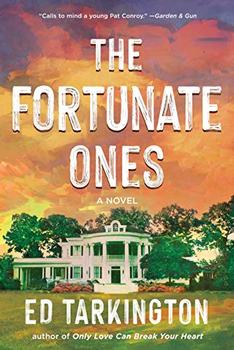Page 5 of 5
There are currently 29 member reviews
for The Fortunate Ones
-
Reid B. (Seattle, WA)
Rich white people in love
Charlie Boykin lives on the wrong side of the tracks or, at least, in the wrong part of Nashville. His mother fled her affluent life at 15 because she was pregnant with Charlie and defiantly unwilling to part with him. For over a decade she lived a hand-to-mouth life, raising Charlie, working as a waitress, living with her cousin, an aspiring singer who never moves beyond the local bar scene.
Then Charlie lucks out. His mother dresses them both in their Sunday best and takes her son to an interview at the exclusive private boys' school, Yeatman. Much to his surprise, he is admitted to the school on full scholarship. Better yet, he is paired with Archer Creigh, a cultured young man with the pedigree of Nashville royalty. Arch is kind and benevolent, and takes Charlie under his wing. He also introduces him into the Haltom family, a nouveau riche addition to the Belle Meade community. Jim Haltom is his benefactor, for reasons that Charlie does not interrogate too closely, nor discover until many years later. But Charlie thinks mostly and with great pleasure of the reprieve he has been given. With great relief he falls under the spell of all this genteel wealth. Of course, all of it's too good to be true (it wouldn't be much of a novel if it were otherwise, would it?) Soon Charlie begins to see the ugly underside of all this plenty and gets caught up in the emotional maelstrom of involvement with this crowd.
I suppose I am damning this book with faint praise when I say it is perfectly competently written, but that seems to me the most accurate description of what this book is: a competent story, efficiently if ploddingly written, with only a few implausibilities (the Army? Really?). But in the final analysis it really doesn't seem to have much to say. We come to care only mildly for these folks and what they are going through; without emotional investment in their plight, though the book never really flags, it never excites, either, never challenges or thrills us.
I have also tired of the trials and tribulations of rich, white people. Yes, there are nods here and there in this book to the plight of those who aren't either of these things, but they are just that: nods rather than an actual exploration of what it means to be black or poor or (God help you) both in the Nashville of the late 20th and early 21st century. Perhaps I am just unfeeling (rich people, after all, grieve and fail and die, just like the rest of us), but probably not. Particularly in this moment of our country's history, it seems singularly tone deaf to publish a book about white privilege and expect us to sympathize with the privileged white people. Don't get me wrong, that's not the only reason I couldn't really relate to this book; it's just not that richly plotted and the conflicts raised are fairly pedestrian. But it certainly doesn't help that we have to climb that racial and class hill in order to care.
